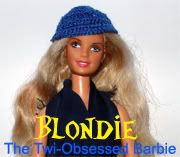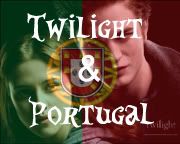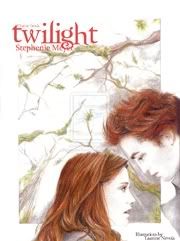Stephenie Meyer chose one of the Friar Lawrence’s quotes for the citation of her second book: «New Moon».
«Romeo & Juliet» by William Shakespeare is often referido in «New Moon», initially because Bella is studying it in school and later when Bella compares her situation with Juliet’s.
Again, the basic lines of story are similar in «New Moon» and «Romeo & Juliet», specially in three points:
1. Edward/Romeo has to leave Bella/Juliet and both did it against their wills (Edward thinks that’s the only way to keep Bella safe and Romeo has to run away or he’d be arrested);
2. Both Bella and Juliet apparently kill themselves (although Bella had jumped the cliff to hear Edward’s voice and Juliet has poisoned herself to pretend she was dead in front of her family);
3. Edward/Romeo finds Bella/Juliet “dead” and takes rash conclusions (Edward goes to Volterra and beg the Volturi to kill him and Romeo poison himself).
«I wouldn’t live without you.», this is a very important idea, both in «Romeo & Juliet» and «New Moon». It’s its fault of Edward’s and Romeo’s reaction (in point 3) because they believe their existence would be impossible in that situation.
A curious fact in «New Moon» is Edward criticize Romeo saying that he did «mistake after mistake» , but also Edward will make the mistake of leave Bella and then of wanting to die (without be sure that Bella was truly dead).
Bella asks herself how would end «Romeo & Juliet» if Romeo hadn’t came back and Juliet had married with Paris. She’s, truly, wondering if it would be right to choose Jacob (Paris), once that Edward (Romeo) wouldn’t came back.
Later, when Jacob speaks with Bella and Edward after their return from Volterra, Bella thinks about an excert of «Romeo & Juliet»: «They fight. Paris die.”, so she creates a kind of superstition (if they fight, Paris/Jacob will die), reinforcing the idea of similarity between Shakespeare’s work and her story.
My favourite part of «Romeo & Juliet» is one of their night-talks (Romeo/Edward sneaks during the night to speak with Juliet/Bella):
JULIET – (...) Good-night, good-night! Parting is such a sweet sorrow that I
shall say good-night till it be morrow!
«Romeo & Juliet», act II, scene II
Stephenie Meyer escolheu uma das falas do Frei Lourenço para a citação no seu segundo livro: «New Moon».
A obra «Romeu e Julieta» de William Shakespeare é várias vezes referida em «New Moon», inicialmente porque Bella está a estudá-la na escola e mais tarde quando Bella compara a sua situação com a de Julieta.
Mais uma vez, as linhas de base para a construção da história são semelhantes em «New Moon» e «Romeu e Julieta», especialmente em três pontos:
1. Edward/Romeu tem de deixar Bella/Julieta e nenhum deles o faz de livre vontade (Edward pensa que é a única de manter Bella em segurança e Romeu tem de fugir para não ser preso);
2. Tanto Bella como Julieta aparentemente se suicidam (embora Bella tenha apenas saltado do precipício para ouvir a voz do Edward e Julieta tenha tomado o veneno para se fingir morta perante a família);
3. Edward/ Romeu depara-se com Bella/Julieta “morta” e tira conclusões precipitadas (Edward dirige-se a Volterra e pede aos Volturi que o matem e Romeu envenena-se).
«Eu não viveria sem ti.», esta é uma ideia muito importante tanto em «Romeu e Julieta» como em «New Moon». É a causa da reacção de Edward e Romeu (referida no ponto 3) porque eles acreditam que a sua existência nessa situação é impossível.
Um facto curioso em «New Moon» é Edward criticar Romeu dizendo que ele «faz erros atrás de erros», mas também ele acabará por cometer o erro de deixar Bella e a seguir de se querer matar (sem ter a certeza que Bella estava realmente morta).
Bella questiona-se de como acabaria «Romeu e Julieta» se Romeu não tivesse voltado e Julieta tivesse casado com Paris. Ela na verdade está a questionar-se se seria correcto escolher Jacob (Paris), uma vez que Edward não voltaria.
Mais tarde, quando Jacob fala com Bella e Edward após o regresso de Volterra, Bella lembra-se de um excerto de «Romeu e Julieta»: «Eles lutam. Paris morre.», criando uma espécie de superstição (se eles lutarem, Paris/Jacob morrerá) e reforçando a idea de semelhança entre a obra de Shakespeare e a sua história.
A minha parte favorita de «Romeu e Julieta» é uma das suas conversas nocturnas (Romeu/Edward “esgueira-se” durante a noite para falar com Julieta/Bella):
JULIETA – (…) Boa Noite! Boa Noite! A despedida é uma tão doce tristeza que
continuarei a dizer «boa noite» até que seja manhã.
«Romeu e Julieta», acto II, cena II




















